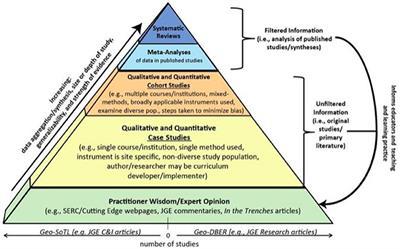The best way to predict the future is to create it. This quip by the renowned educationist Peter Drucker encapsulates the intriguing inflection point the world of education presently finds itself at.
First and foremost, a question needs to be asked earnestly: what does the future of education constitute? The much-vaunted digitalisation of education has been precipitated by the Covid-19 pandemic. Online classes and hybrid education, which were rather exceptions in the past, are now the new norm. The Socratic approach to teaching and learning, based on pre-packaged learning resources, is no longer indispensable. The teachers have evolved from the ‘sage on the stage’ to ‘guide on the side’. From knowledge providers, they have emerged as knowledge facilitators.
A similar change has been observed in the 21st century learners. With an easy access to copious amount of data at a mere click, the learners are demanding a greater say in curating their learning experiences by becoming actively involved in the creation of content and in deciding the pace and place of learning. Flipped classrooms are engendering high-order thinking. Tag-based folksonomy is evidence of the students being efficient producers of knowledge and disseminating it across the social media platforms.
Alongside these changes in the profiles of teachers and learners, the very learning environment has transformed. The twin forces of technology and pedagogy are redefining the meaning of education. The emphasis is gradually shifting from teaching a subject to developing a responsible, learned individual with a consciousness towards sustainability.

Future Learning Systems shall shape this new form and decide the course of education in the third decade of the 21st century. Among the multiple elements of these systems, some require teacher training for empowerment of educators to lead this change into the future.
New-Age instructional systems
In order to prepare for the classroom of 2030, an in-depth understanding of the new-age instructional systems is imperative. Efficient use of learning resources, adaptive learning, competency-based learning, digital proficiency and quick decision-making will facilitate the teachers in making the most of the new-age instructional systems that shall leverage both new technology and pedagogy effectively.
Tech-enabled assessments
In order to facilitate the students to develop concrete skills over abstract learning, it is paramount to fairly and reliably assess their performance. Computer-based assessments and computer assisted assessments are already being incorporated across educational institutions. To create a comprehensive profile of a student’s learning, collaborative cloud based technology will track his or her academic progress through the years and institutions. The challenge for the educators would be to choose the right kind of assessment.
Students as co-creators of content
Students are no longer satisfied being passive in their learning experience. They demand active participation and involvement in content creation, curriculum design, classroom planning and even assessments. The onus is on teachers to guide students through this enhanced engagement and curate the content created by learners.
Interoperability in education
At present, most of the schools across the world are operating on hybrid platforms. The teachers of K12 and higher education are using multiple technology-enabled platforms and learning management systems to deliver the content and assess student performance. Smart tech, driven by neural networks, will interlink different data sets to create a comprehensive and cohesive information pool through interoperability in education.
To confidently introduce these elements and navigate the change in the near and far future, educators in the K-12 and higher education need to be equipped with requisite technological and pedagogical competencies. Special professional development programmes such as STTAR Future Learning Systems are designed towards fulfilling this very need. To be helmed by global academics and experts who have done ground-breaking work in the field of education, the programme features sessions that delve deep into all the elements and topics relevant for defining the future of education. That future is not far and the preparation to create it begins now.
Facebook TwitterLinkedinEmail {{#totalcount}}Top Comment
{{A_D_N}}
{{C_D}}
{{{short}}} {{#more}} {{{long}}}...Read More {{/more}}
{{/totalcount}} {{^totalcount}}Start a Conversation
{{/totalcount}} {{{add_comment_link}}}{{#totalcount}}{{{read_comment_link}}}{{/totalcount}}Disclaimer
Views expressed above are the author's own.




